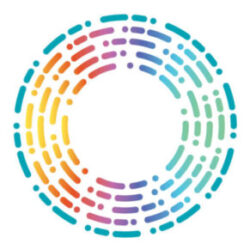Types of CancerNavigation
Kidney Cancer
Kidney cancer, also called renal cancer, is the abnormal growth of cells in the kidney tissue. Over time, these cells form a mass called a tumour. Cancer begins when something triggers a change, and the abnormal cells divide out of control. Usually only one kidney is affected. As the cancer grows it can affect how your kidney works and can cause problems.
How your doctor treats your kidney cancer will depend on how far the cancer has grown into the tissues of the kidney and the grade of cancer.
The most common type of kidney cancer is renal cell carcinoma (RCC). Most commonly, kidney cancer is detected incidentally, on imaging that has occurred for another purpose and usually renal cancer has no signs and symptoms. However, in cases where a larger tumour has formed, a patient may experience a mass in the abdomen, blood in the urine and pain in either side of the lower back.
Approximately 700 people in Ireland are diagnosed with renal cancer each year and is more common in men than women.
-
Your Kidney Cancer Team
Urology Surgeons
Prof Davis
Consultant Urologist
Secretary: 01) 809 2339
Ms Little
Consultant Urologist
Secretary: 01) 809 2935
Mr Cheema
Consultant Urologist
Secretary: 01) 809 3046
Mr Power
Consultant Urologist
Secretary: 01) 809 3046
Mr Smyth
Consultant Urologist
Secretary: 01) 809 2339
Ms Mc Lornan
Consultant Urologist
Secretary: 01) 809 3135
Mr Mohan
Consultant Urologist
Secretary: 01) 809 3135
Mr Dugal
Kidney Transplant and Endocrine Surgeon
Secretary: 01) 809
Mr Broe
Consultant Urologist
Secretary: 01) 809 3310
Nurse Specialists
Angela Niland Urology/Kidney Retrieval ANP
Karen Kelly Candidate Urology/Kidney Retrieval ANP
Contact: 01) 797 7799
Other Healthcare Professionals
If you need the support of Physiotherapy, Occupational Therapy, Dietician, Psycho-Oncology, Counsellors or Medical Social Work during your hospital stay to help you with your care we will organise these for you.
-
Referral to the Kidney Cancer Service
Referrals are sent by a General Practitioner via Health mail or by letter. Sometimes they may be sent from the Accident and Emergency Department or from other hospitals within the RCSI hospital group.
Your referral will be reviewed by a Consultant Urologist and a date and time for an appointment will be posted to you.
Email: urologyoutpatients@beaumont.ie
-
Types of Kidney Cancer
Description of main types of kidney cancer to go here- see other tumour types
- Renal cell cancer (RCC) or renal cell adenocarcinoma: About 9 out of 10 kidney cancers are renal cell cancer. It is also known as renal cell adenocarcinoma or clear cell renal cell cancer.
- Urothelial kidney cancer: This is also known as transitional cell cancer (TCC). This is a rare type of kidney cancer that affects the renal pelvis. This is the part of your kidney that collects urine before it drains into your bladder. This cancer behaves in a different way to renal cell carcinomas and usually needs different treatment.
-
Risk Factors for Kidney Cancer
Body Weight and Height
Increased Body Mass Index (BMI) can cause kidney cancer. Increased weight causes approximately 24 out of every 100 kidney cancers.
Smoking
Smoking increases your risk of developing kidney cancer. This risk increases depending on how long you have been a smoker and how many cigarettes you smoke per day. This risk decreases if you stop smoking.
Kidney Disease
People with significant kidney disease such as kidney failure, that requires dialysis have an increased risk of developing kidney cysts. This in turn increases the risk of developing kidney cancer.
Genetics
Some people are predisposed to developing kidney cancer. These can be hereditary or familial genes that can cause kidney cancer.
Older Age
Your risk of kidney cancer increases as you get older.
-
Signs and Symptoms of Kidney Cancer
- Blood in your urine – the blood may not be there all the time but might come and go
- A lump in the kidney area
- Painful spasms in your kidney tubes or bladder
- A dull pain in your side
- High temperatures and night sweats
- Tiredness
- Weight loss
A lot of these can be caused by other common conditions. For example, a urine infection, kidney stones or an enlarged prostate gland. It’s still important to go to the GP and get any unusual changes checked out.
-
Investigations for Kidney Cancer
Your Consultant will ask you questions about your general health and will examine you. They will explain the tests you need done. Some of these tests include:
- Blood and urine tests: Blood tests can help to check your general health. They will be done regularly during your treatment. Urinalysis and urine culture will be performed to check for infection or blood.
- Radiology scans: These may include an X-ray, a CT Urogram a CT Thorax, or Ultrasound of your bladder, kidneys and ureters. For more information click on the name of the scan.
- Biopsy: A biopsy is where a small sample of tissue is removed from your bladder and examined under a microscope. This can give your doctor more information about what type of bladder cancer it is and its grade.
- MRI: Magnetic resonance imaging produces pictures from different angels and displays soft tissue clearly. It can show up abnormal areas inside the body. An MRI scan checks the size of your cancer and if it has spread to other areas of the body.
It may sometimes be necessary to organise further scans before deciding your treatment. If this is the case your Consultant will give you information about these tests at your clinic appointment.
-
Treatments for Kidney Cancer
Surgery
- For most kidney cancers surgery is the first step in treating kidney cancer. The goal is to remove the cancer while keeping as much function of the kidney (where possible).
- Surgery can be open, laparoscopic (keyhole) or robotic assisted depending on the type, size and stage of the cancer, as well as your overall health.
Different types of surgery for kidney cancer include;
- Removing the affected kidney entirely (nephrectomy).
This means removing the entire kidney and a border of healthy tissue. Sometimes, nearby tissues such as lymph nodes, adrenal gland or other structures may be removed.
- If the entire kidney is removed it is possible to live a normal life with only one kidney. Your other kidney can usually make up for the kidney which was removed.
- Removing part of the kidney /removing the tumour from the kidney (partial nephrectomy). This means removing the portion of the kidney affected by cancer and a small margin of healthy tissue surrounding it.
- This type of surgery may be an option if you only have one kidney or the tumour is quite small. It is used to preserve kidney function and reduce the risk of later complications, such as kidney disease the need for dialysis.
Nonsurgical Treatments
Some small kidney cancers may be treated with nonsurgical treatments. These may be used where surgery is too risky for certain individuals.
These options include;
Cold treatment to FREEZE cancer cells -cryoablation.
A hollow needle in inserted using ultrasound or other imaging guidance into the skin and into the tumour. Cold gas is used to destroy the tumour.
Hot treatment to HEAT cancer cells – radiofrequency ablation.
A special probe is inserted through the skin and into the kidney. This uses an electrical current to heat up or burn cancer cells.
Treatments for advanced and recurrent kidney cancer
Unfortunately not all kidney cancers are curable. Additional treatments for recurrent kidney cancers or cancer which has spread may be used to slow progression and treat symptoms.
These can include;
Surgery to remove as much of the cancer as possible.
If the kidney cancer cannot be fully removed, the surgeon may try to remove as much as possible. This may also include other areas of the body that the cancer may have spread to.
Radiation therapy.
Radiation therapy uses high-energy radiation and protons to kill cancer cells. Radiation therapy is sometimes used to control or reduce symptoms of kidney cancer that has spread to other areas of the body, such as the bones and brain.
-
Supports
Beaumont Hospital Daffodil Centre
The Daffodil Centre is located in the main hospital foyer. You can drop-in at any time during opening hours. If you’re not able to visit us, we’re happy to talk to you over the phone or you can write to or email us.
Opening hours: Monday to Friday 08:00 to 16:00
Contact: 01 7974880
Postal Address: Daffodil Centre, Beaumont Hospital, Beaumont Road, Dublin 9.
Email: daffodilcentrebeaumont@irishcancer.ie
Irish Cancer Society (ClickHere)
ARC Cancer Support Centre (Click Here)
557/559 South Circular Road, Dublin 8
Contact: 01 7078880
Gary Kelly Cancer Support Centre
George’s Street, Moneymore, Drogheda, Co. Louth
Tel: 041 980 5100

